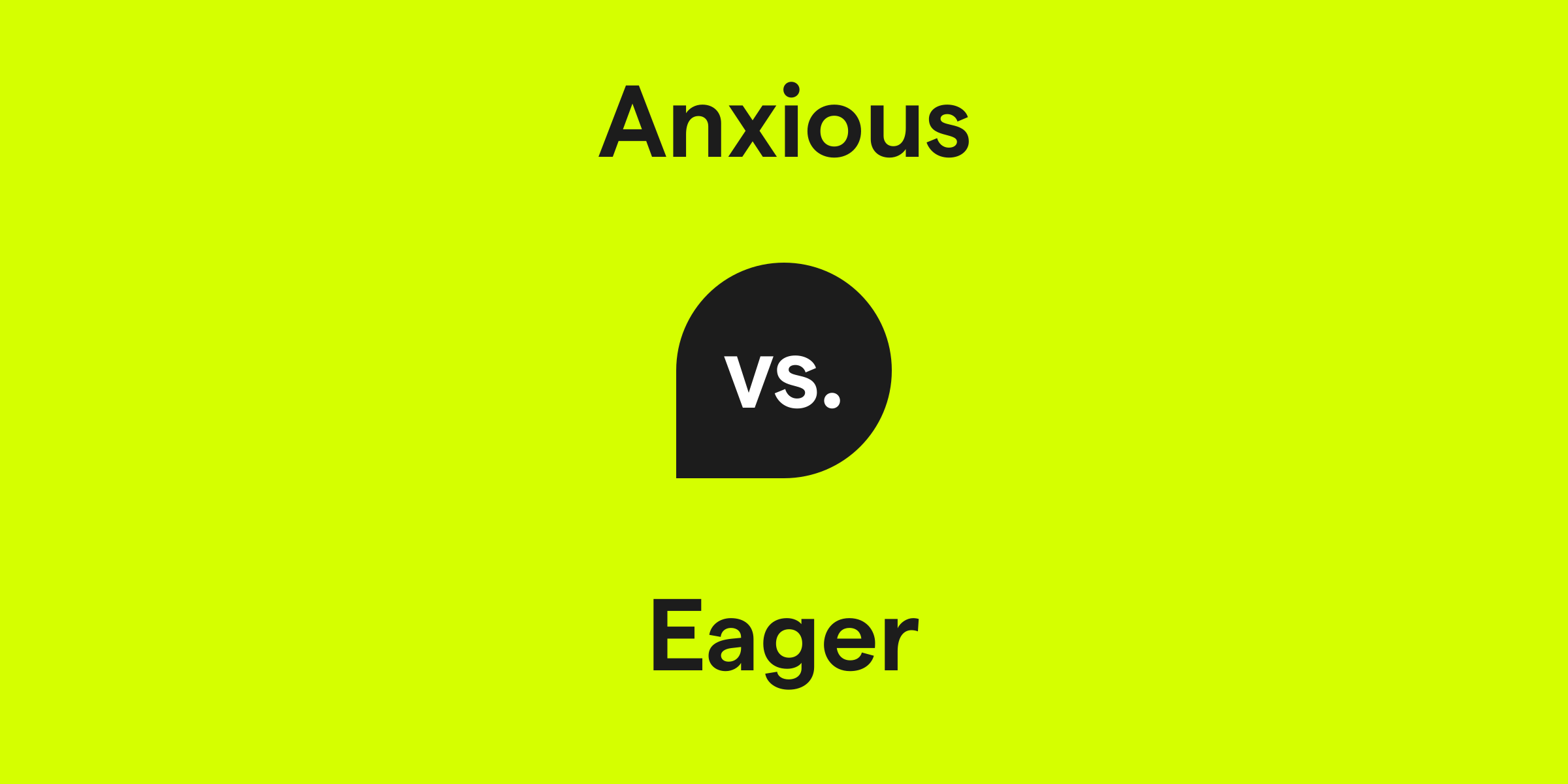Anxious vs. Eager: What's the Difference?
Understanding the difference between anxious and eager can help convey the correct emotional nuance when describing anticipation. Anxious is used to describe a feeling of worry, nervousness, or unease about something with an uncertain outcome. Eager, on the other hand, denotes an enthusiastic and keen desire to do something or for something to happen, typically without the negative connotations associated with anxiety.

How do you use the word anxious in a sentence?
Use anxious when you want to express a sense of distress, fear, or apprehension about a forthcoming event or situation. It often accompanies scenarios where the outcomes are unpredictable, potentially disappointing, or unfavorable. Anxious emphasizes an inner discomfort or concern.
Examples of anxious in a sentence
- I'm feeling really anxious about this job interview.
- She was anxious to hear the news from her doctor.
- The team is anxious about playing in the finals under such bad weather conditions.
How do you use the word eager in a sentence?
Eager should be used to communicate an excitement and positivity about a future event. It suggests looking forward to something with anticipation and a proactive attitude. Unlike anxious, eager carries an underlying feeling of joy or eagerness to engage with the upcoming event.
Examples of eager in a sentence
- The children were eager to open their presents on Christmas morning.
- He's eager for the challenge of his new role at work.
- She was eager to see her friends again after so many years apart.
Anxious and eager definition, parts of speech, and pronunciation
Anxious definition:
Anxious is an adjective that describes a feeling of worry, unease, or nervousness, usually about an imminent event or something with an uncertain outcome.
Anxious parts of speech:
Anxious pronunciation:
Phonetically, anxious is pronounced as /ˈæŋk.ʃəs/.
Eager definition:
Eager is an adjective that means having or showing keen interest, intense desire, or impatient expectancy.
Eager parts of speech:
Eager pronunciation:
Phonetically, eager is pronounced as /ˈiː.ɡər/.
Anxious is an adjective that describes a feeling of worry, unease, or nervousness, usually about an imminent event or something with an uncertain outcome.
Anxious parts of speech:
- As an adjective: The anxious mother waited by the phone for any news of her missing child.
Anxious pronunciation:
Phonetically, anxious is pronounced as /ˈæŋk.ʃəs/.
Eager definition:
Eager is an adjective that means having or showing keen interest, intense desire, or impatient expectancy.
Eager parts of speech:
- As an adjective: The eager student raised her hand to answer every question the teacher asked.
Eager pronunciation:
Phonetically, eager is pronounced as /ˈiː.ɡər/.
Anxious vs. eager in a nutshell
Anxious and eager both describe states of anticipation but differ in their emotional connotations. Anxious is imbued with apprehension and worry, often about something with an unpredictable outcome. Eager indicates enthusiasm and a positive, proactive approach towards future events. Understanding and using these words appropriately ensures clear and expressive communication of one's feelings and attitudes.
Get AI Writing Assistance Wherever You Type
Make sure your vocabulary is on point and every punctuation mark is in the right place, no matter where you’re working. Grammarly works across more than 1 million websites and apps so you can improve your writing without copying, pasting, or breaking focus.

More Commonly Confused Words
Interest piqued? Pore (not pour) over other commonly confused words to help your writing reach peak (not peek) performance.